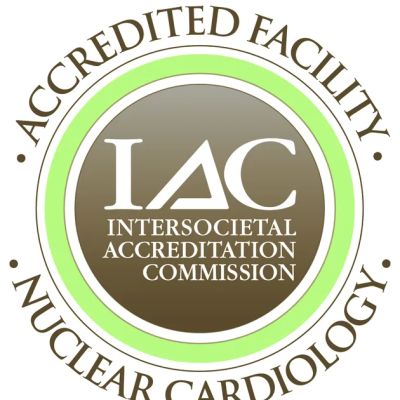Understanding the Link Between Sleep Deprivation and Heart Disease
- Overview: How Sleep Deprivation Affects Heart Health
- How Sleep Loss Increases the Risk of Heart Disease
- The Impact of Chronic Sleep Deprivation on Cardiovascular Health
- Case Study: Sleep Deprivation and a Heart Attack
- How to Prevent Heart Disease Through Better Sleep
1. Overview: How Sleep Deprivation Affects Heart Health
Sleep deprivation is increasingly recognized as a significant risk factor for heart disease. While many people associate sleep problems with tiredness or low energy levels, the effects of chronic sleep loss go far beyond just feeling sleepy. Research has shown that insufficient sleep can negatively impact the cardiovascular system, leading to an increased risk of heart disease, hypertension, stroke, and even heart attacks.
For instance, sleep plays a crucial role in the regulation of blood pressure and inflammation, both of which are directly linked to heart health. Without adequate rest, the body’s ability to repair itself is compromised, and the long-term effects on the heart can be significant. In this article, we’ll explore the mechanisms behind this connection, the statistics that reveal the impact of sleep deprivation, and what can be done to protect the heart by improving sleep quality.
2. How Sleep Loss Increases the Risk of Heart Disease
Sleep deprivation triggers a number of physiological changes that contribute to heart disease. The most notable are:
- Increased Blood Pressure: Chronic sleep loss has been shown to raise blood pressure, a leading risk factor for heart disease. Studies suggest that people who sleep less than six hours a night have a significantly higher risk of developing high blood pressure.
- Inflammation: Sleep deprivation can lead to increased levels of inflammation in the body. Inflammation is a known factor in the development of atherosclerosis (plaque buildup in the arteries), which is a major cause of heart disease.
- Elevated Stress Hormones: Sleep deprivation can increase levels of stress hormones, such as cortisol. Elevated cortisol levels over time can contribute to high blood pressure, increased blood sugar levels, and fat accumulation around the abdomen—all of which are linked to an increased risk of heart disease.
- Disrupted Heart Rhythm: Chronic lack of sleep has also been associated with an increased risk of arrhythmias (irregular heartbeats), which can lead to more serious cardiovascular issues such as stroke or sudden cardiac arrest.
These physiological changes highlight just how important it is to get enough rest each night. Sleep is not just a time for the body to recharge; it is essential for maintaining normal heart function and overall cardiovascular health.
3. The Impact of Chronic Sleep Deprivation on Cardiovascular Health
The statistics surrounding sleep deprivation and heart disease are alarming. According to the American Heart Association, individuals who sleep less than 6 hours a night are at a significantly higher risk of developing high blood pressure and heart disease. In fact, studies have found that sleep deprivation can increase the risk of heart disease by as much as 45%.
Further research has shown that individuals who consistently experience poor sleep are also more likely to suffer from obesity, diabetes, and high cholesterol—all of which contribute to the development of heart disease. Even moderate sleep deprivation (less than 7 hours per night) has been shown to increase the risk of heart attacks and stroke, especially in people who already have other cardiovascular risk factors.
These statistics underscore the importance of prioritizing sleep as part of a comprehensive heart health strategy. Chronic sleep deprivation is not something to be ignored, and its effects on the cardiovascular system can be profound.
4. Case Study: Sleep Deprivation and a Heart Attack
Consider the case of Mark, a 42-year-old man who worked long hours at his desk job and often stayed up late to meet deadlines. Despite feeling exhausted, he powered through his days, relying on caffeine to stay alert. One morning, after a night of poor sleep, Mark experienced a heart attack while at work. His doctors attributed the incident to his chronic sleep deprivation, which had contributed to high blood pressure, elevated stress hormones, and overall cardiovascular strain.
Mark's story is a stark reminder of the consequences of ignoring the connection between sleep and heart health. His lack of sleep had silently worsened his heart condition over time, and it was only when his heart couldn’t cope any longer that he experienced a life-threatening event. Fortunately, Mark received immediate treatment and is now focused on improving his sleep patterns to reduce the risk of future health issues.
Mark's case highlights how sleep deprivation can silently contribute to heart disease and the importance of addressing sleep quality before it becomes a matter of life or death.
5. How to Prevent Heart Disease Through Better Sleep
Improving sleep quality is one of the most effective ways to reduce the risk of heart disease. Here are some practical steps you can take to ensure you’re getting the rest your heart needs:
- Prioritize Sleep: Aim for 7-9 hours of sleep per night to allow your body to recover and repair itself. Consistent, quality sleep is essential for maintaining healthy blood pressure and heart function.
- Establish a Sleep Routine: Go to bed and wake up at the same time every day to regulate your body’s internal clock. Avoid late-night caffeine or heavy meals, as they can interfere with your sleep quality.
- Manage Stress: Practice relaxation techniques such as meditation, deep breathing, or yoga to reduce stress before bedtime. Lower stress levels can help improve both sleep and heart health.
- Create a Comfortable Sleep Environment: Keep your bedroom cool, quiet, and dark to encourage better sleep. Consider using a white noise machine or blackout curtains if needed.
By improving your sleep habits, you can significantly reduce your risk of heart disease. Getting enough quality sleep is a simple but powerful tool in your heart health arsenal.




















